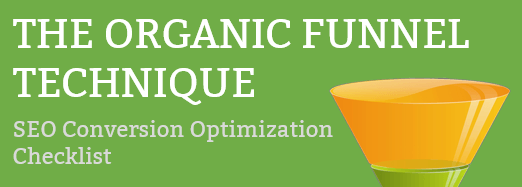Everyone knows its necessary to have a website these days. Some try their hand at social media, maybe create a blog or an online newsletter, but without at least a simple plan, you can’t learn what works and what doesn’t. You are just wasting your budget. You have not kept up with the big changes that will have a big impact on growing your business.
Building a Website is Not a Online Strategy
When I first started building websites in 1994, getting people to visit your website wasn’t hard as there wasn’t that many people online and everyone was just hopping from one site to another trying to find cool stuff. But the traffic was useless and the sites were really, REALLY ugly. Companies would put contact forms and feedback forms on their sites and thought it would bring business. But the smart companies started to figure out they could create email campaigns to drive targeted visitors that were more likely to buy something. Then the race really took off as young start-ups were suddenly taking on the legacy brick and mortar Goliaths in their industries.
The days when you could simply outsource the building of a website and drop it online in the hopes of being successful are gone. Young start-ups these days can no longer compete with the established companies without finding a really unique niche and exploiting it till a big fish decides its time to buy. It takes a dedicated marketing team and strategy to have any hope of breaking through the noise and clutter of competitors.
An online marketing strategy will be unique to each company. Of course, these days an online marketing strategy can probably be considered THE marketing strategy for any company under 100 employees. There are a number of common elements that have to be addressed in an online marketing strategy, but using them will be unique to each company.
Features of a Digital Marketing Plan
These are not the only things required in a digital marketing plan, but they better be there or you are missing out on a key piece.
- Social media. Unless you been hiding under a rock, you know you have to have a social media strategy that fully embraces peer to peer interaction with an online audience. Social media has been shown to drive up to 30% and more traffic to websites that are effectively using it. It’s not hard, just takes a lot of work.
- Email campaigns. A staple marketing tool for online marketing, it still ranks as one of the top marketing tools for reaching an audience.
- Content development. Having great content is at the core of your success online. Without it, a website is nothing more than fluff. Content is no longer text, but consists of infographics, white papers and ebooks, webinars, case studies and much more. These are assets the marketing and sales teams need in order to do their jobs effectively.
- Content Marketing. Once you have content, you have to have a strategy for getting it in the hands of your potential audience and enabling them to share it with others.
- Search Engine Ranking. Let’s face it, these days if you don’t rank well and can’t be found in search engines, your organizations may as well not exist. Ranking well is a combination of having great content and other sites linking to that content. Starting to see a pattern here?
- Search Engine Marketing. If you have a for profit business, unless everyone already wants your product, you need a budget for spending on pay per click. This can easily generate a large percentage of your leads if done well. But like any of these items, it has it’s own strategies and an entire industry built around it.
- Blogger & Media Relations. You need other people talking about you. There are millions of bloggers out there and probably several in your own company. You need to be able to leverage the traditional media outlets as well as the bloggers to talk about your organization. This feeds awareness as well as those extra links your site badly needs.
- Testing Strategy. In my almost 20 years of web development and marketing, I’ve often found most executives think their websites work great. But I’ve never found a website that couldn’t be significantly improved to drive more visitors and a greater number of leads simply by testing a wide variety of elements on their websites and online campaigns. Every organization must adopt a strategy of perpetual testing and change with their website in order to grow the business.
- Web and Conversion Analytics. Every company needs to know what is going on with their website in terms of numbers. Otherwise, its impossible to make anything but an educated guess as to what’s actually going on if you’re going to make improvements. Learn how to understand web analytics, conversion analytics, and campaign stats to determine what is effective and what isn’t.
Hopefully you’re not too scared yet. It is rather daunting to consider just what it takes to really compete online. Small businesses rarely have time to do much of any of this, but those that do will reap the rewards. Companies that can do it will beat their less agile competition and develop a much greater understanding of their customers over time.
Putting these together without a plan will lead to struggles, frustration and failure. Building a plan with a process will bring you much closer to being able to accomplish all of this activity. You can do it. There are a huge number of resources available online that discuss each of the marketing components extensively.


